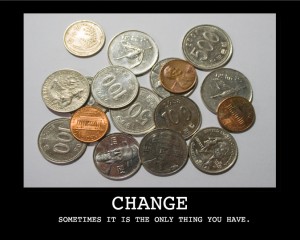 Editor’s Note: In the first post, The Translator talked about how Korean translation worked, and didn’t, in this post he talks about what could be done differently to increase success.
Editor’s Note: In the first post, The Translator talked about how Korean translation worked, and didn’t, in this post he talks about what could be done differently to increase success.
What can we do to produce different results, particularly successful ones? This should start with understanding the difference between getting the work done efficiently versus effectively. This, in a way, is to step out of the box and evaluate the system from a different angle. To get things done as quickly and efficiently, the decision making process is often done vertically. A chain of command, as often found in a military system, works the best to make sure that too many cooks do not spoil the broth, so to speak. One top person makes a decision based on information gathered by his subordinates. Once the decision is reached, the same subordinates execute the decision in an organized manner. This is a wonderful work model that helped industrialization possible for many countries, including Korea. Though dictators, Park Cheong Hee and Chon Du Hwan significantly developed Korea’s economy, no one can refute or ignore all the sacrifices people had to endure and what undesirable side-effects their approach to development has incurred. When the top person’s executive decision is not based on sound evidence, or overrules a logical choice, its effect ripples its devastation down the chain.
 Though far from a dictatorship, translation programs and grants KLTI and Daesan provide cannot escape being this top down model, precisely because money (power) comes from a source at the top. For KLTI, it’s the government funding. For Daesan, Kyobo foundation (or of another similar name) picks who gets the cheese to translate and publish. Unless a systematic change is implemented, the funding source will always control who does what translation. For the last 10 years and more, for better or worse, this system has produced “insanity.”
Though far from a dictatorship, translation programs and grants KLTI and Daesan provide cannot escape being this top down model, precisely because money (power) comes from a source at the top. For KLTI, it’s the government funding. For Daesan, Kyobo foundation (or of another similar name) picks who gets the cheese to translate and publish. Unless a systematic change is implemented, the funding source will always control who does what translation. For the last 10 years and more, for better or worse, this system has produced “insanity.”
A possible model to step out of this vicious cycle, though far from being a perfect one, should be more horizontal in its structure. I am talking about collaboration. Let young and promising Korean authors get together with equally aspirant translators to have them figure things out. From a vertical model, this would seem inefficient, endangering the flavor of perfectly good broth. How risky and preposterous!
I beg you to look again and see what “broth” we are talking about. Has translation of Korean literature to foreign language been so perfected that we cannot take a risk of possibly spoiling it? Does everyone in the world know so clearly waht Korean literature should be that we cannot possibly spoil it?
Let collaboration take place. There is no need for the government in the meeting. It should be more organic. Let the actual workers meet, put their heads together, decide on what to translate, who will translate it to what language and how they will go about publishing it. Then fund that. Though this may not be as efficient, i.e. meeting the deadline, the meeting may be more effective because the constituents are those who are at the forefront of Korea literature and translating it.
There is a saying in Africa: Wisdom is like a baobab tree—no one individual can embrace it. Although I heard this quote in an entirely different context, I think it applies well here. The concept of Korean literature is overwhelmingly huge. Also, it belongs to the public, not a handful of decision makers. Preserving it, experiment with it, faithfully translate it, etc. is not a decision one individual can make or shall be responsible for. Let authors and translators hold hands and go wisely about marketing Korean literature to the world. Give them a chance to spoil their broth.



